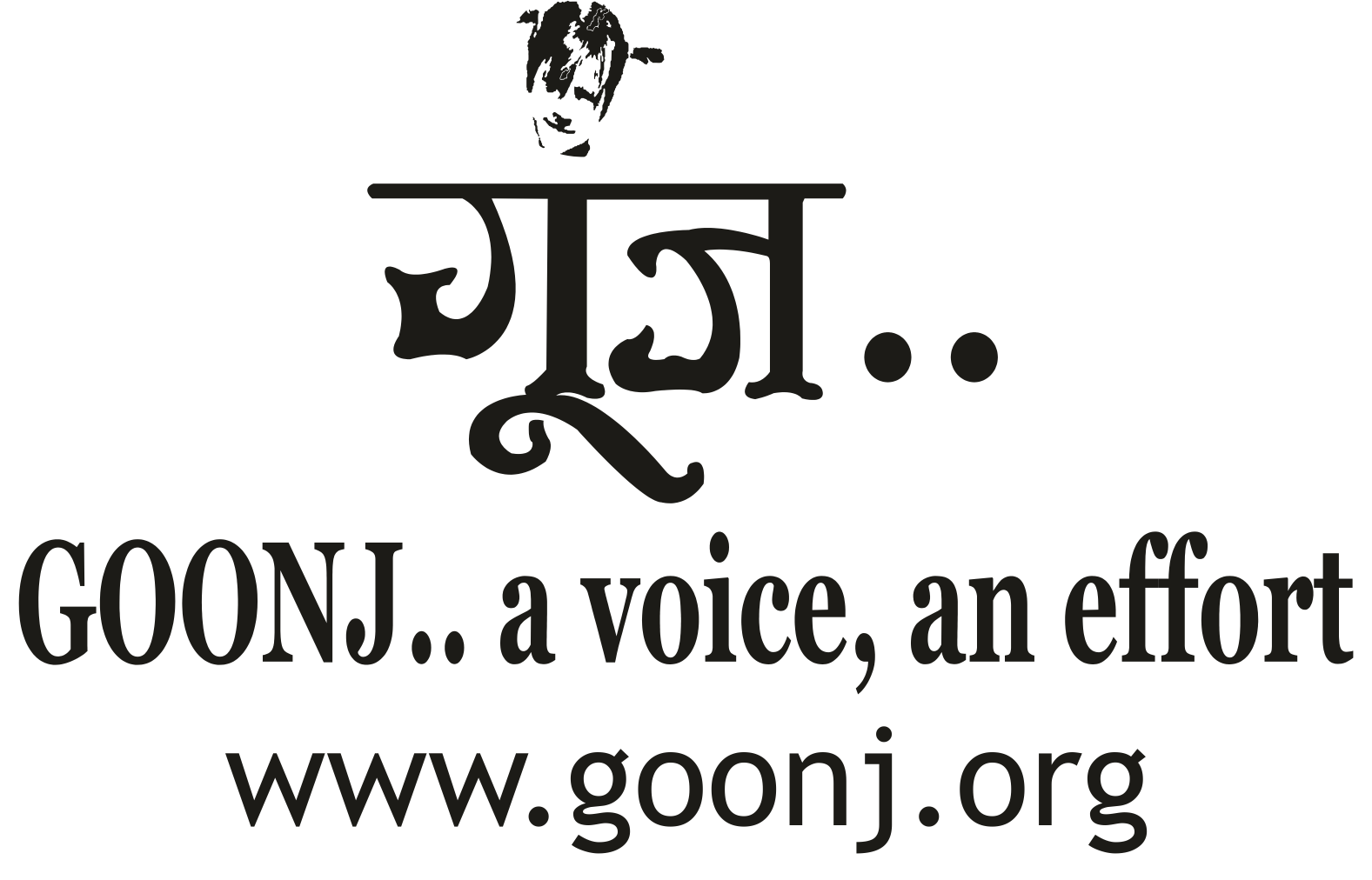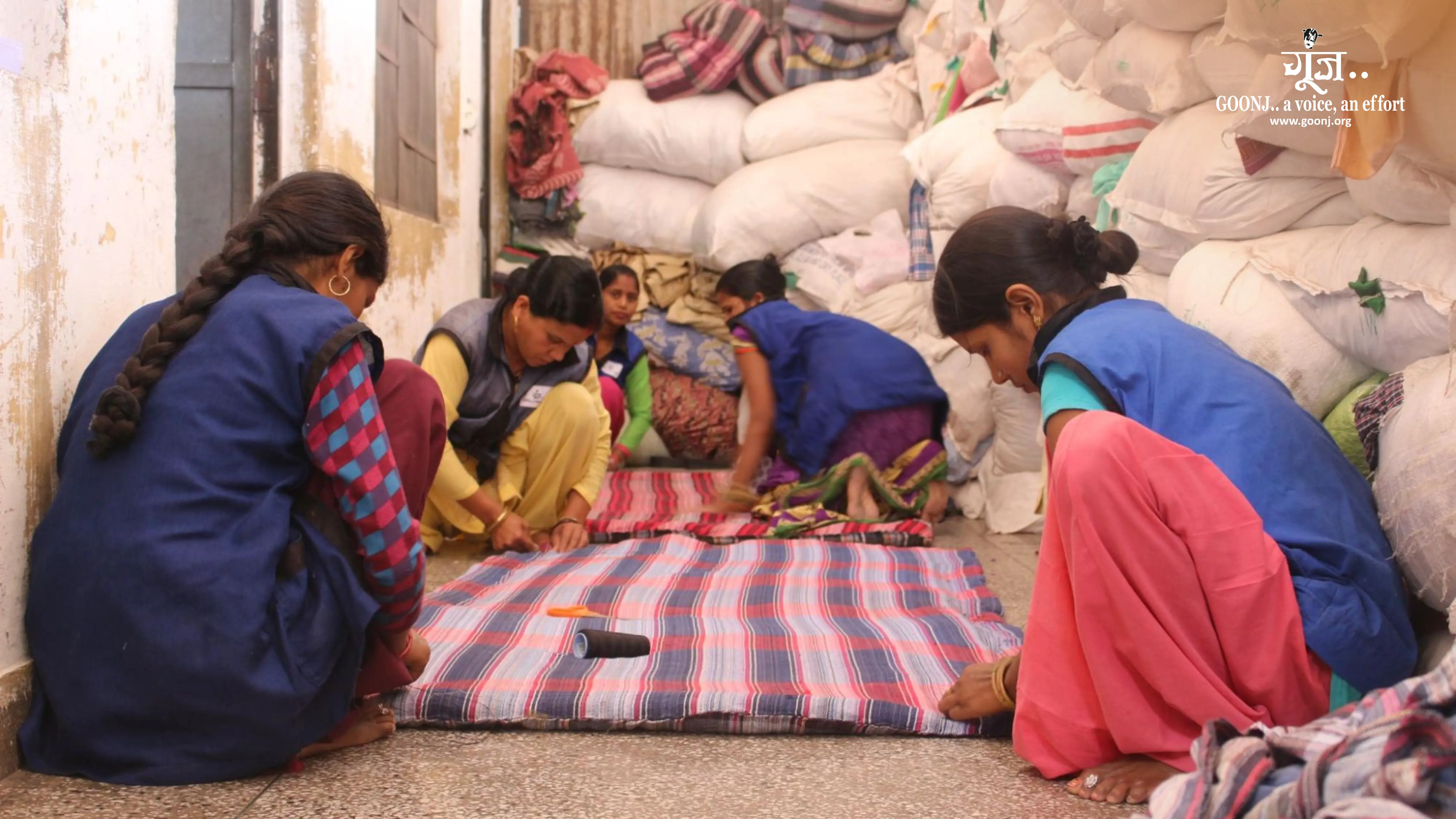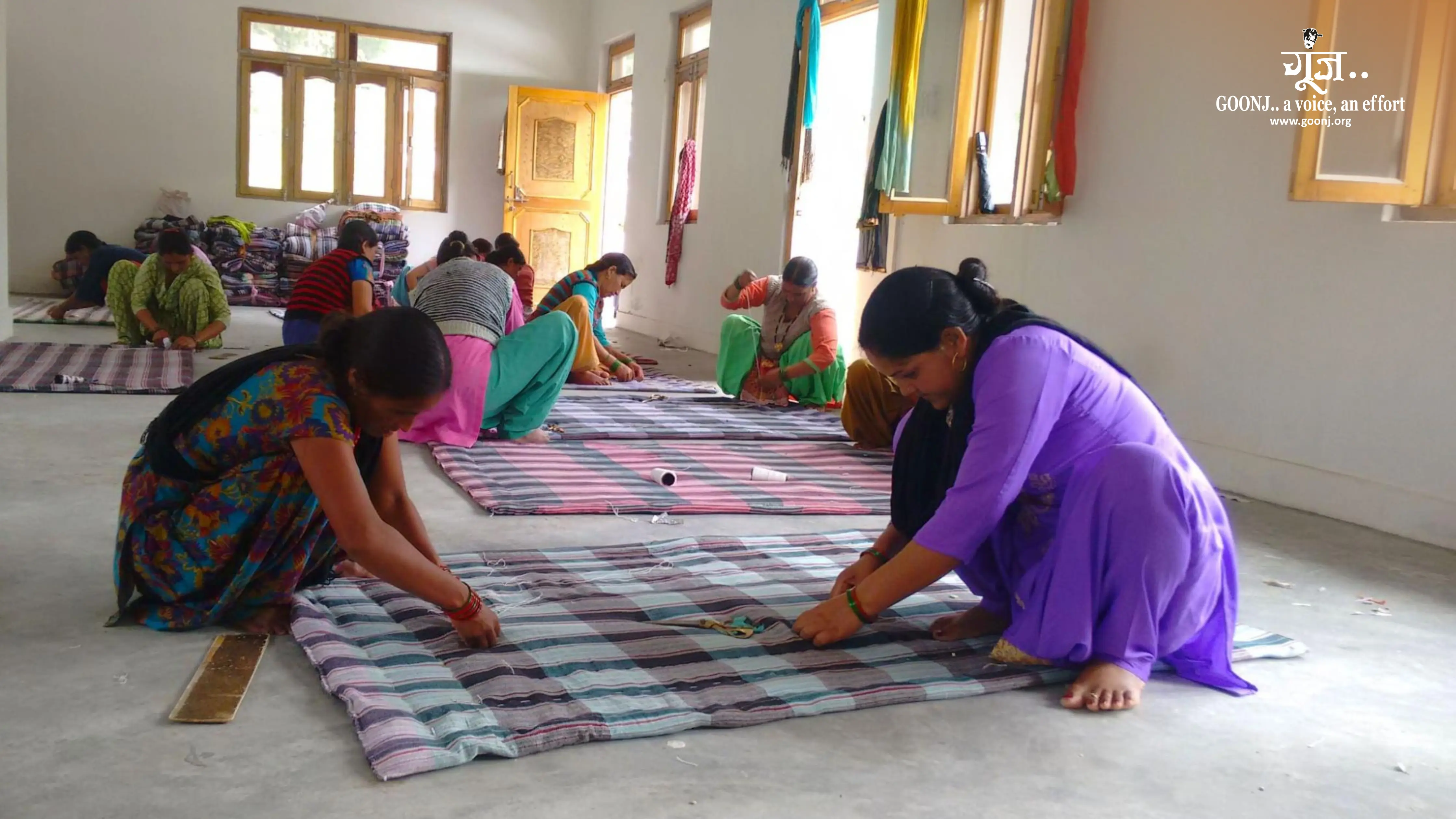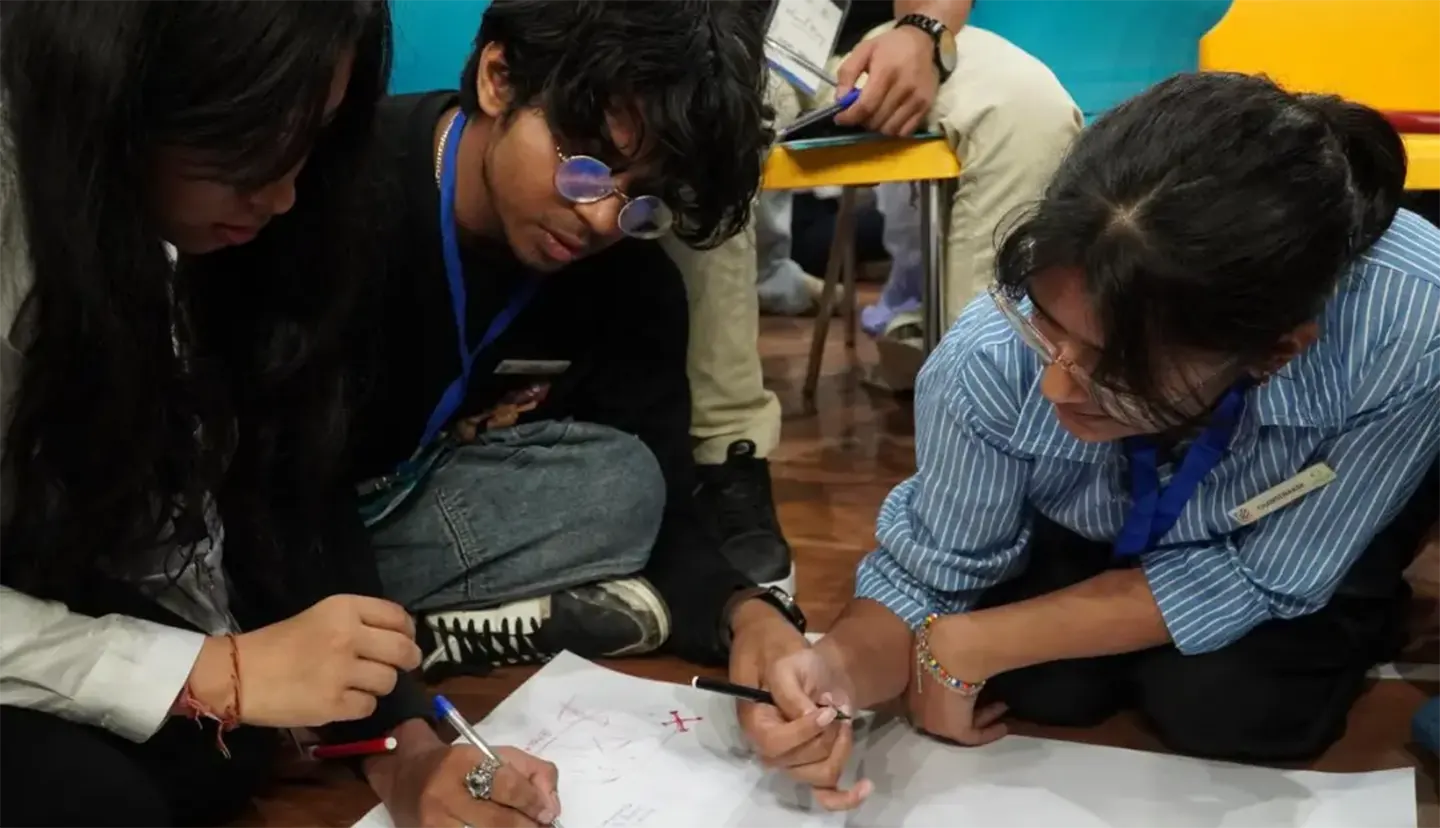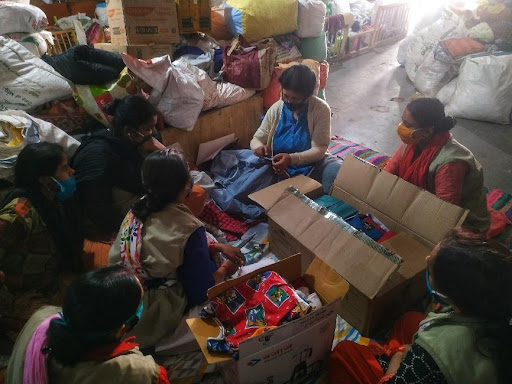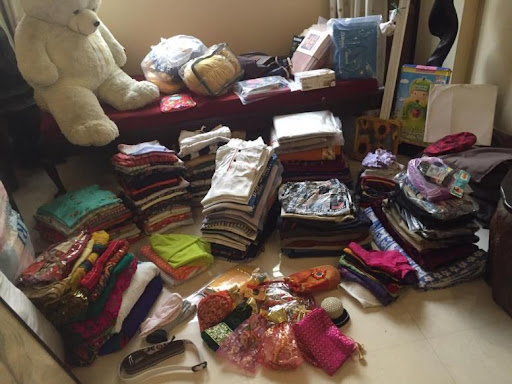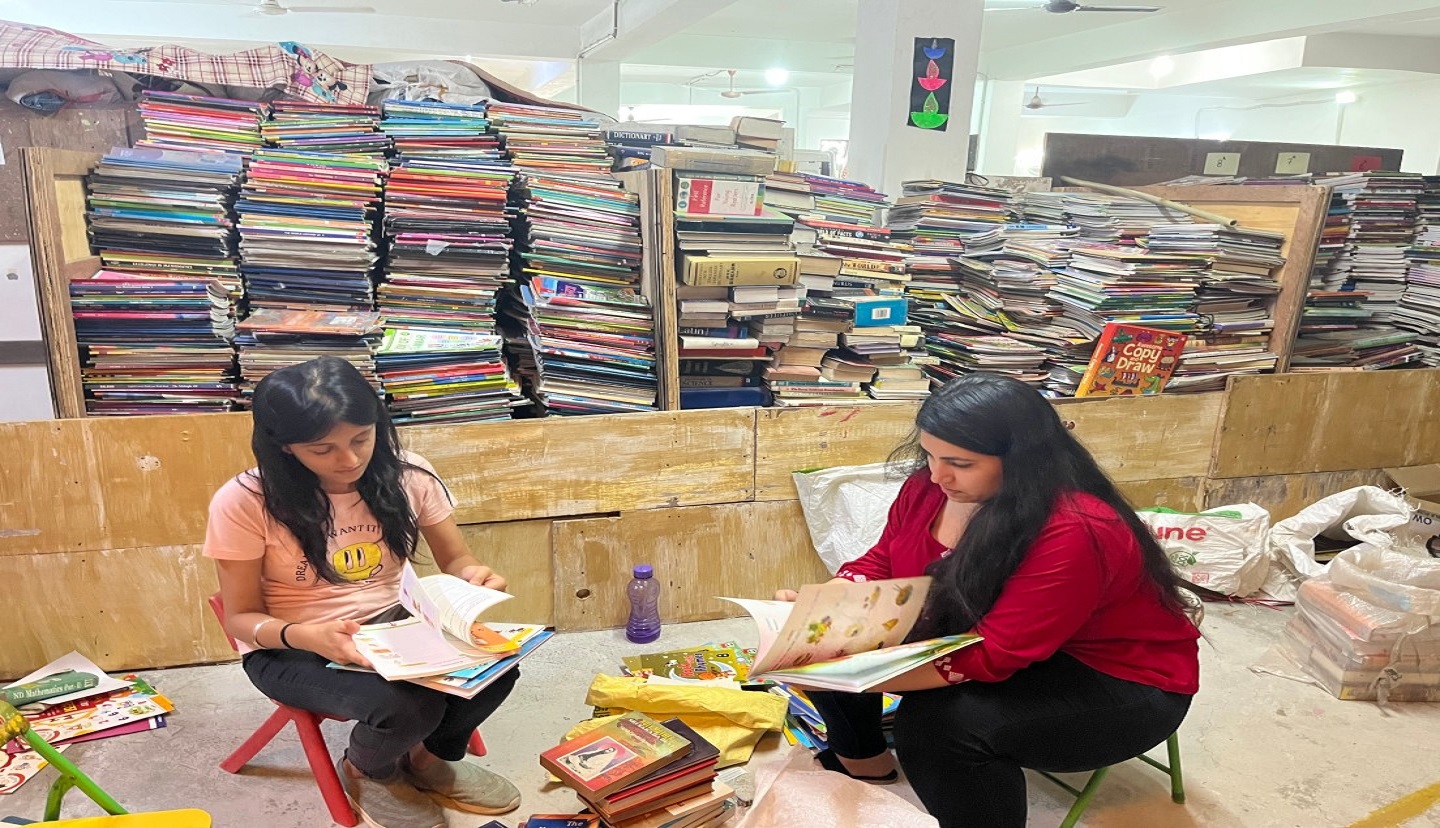In the aftermath of the devastating 2008 Bihar floods, over 30 truckloads of unwearable clothes piled up in a local warehouse, leaving many unsure of how to address the problem. This scenario is not unique to India—worldwide, disaster wastage is a common issue caused by a mismatch between what is contributed and what is needed, or by insensitivity in the contribution process.
Sujni, the traditional cloth quilt of rural India, was repurposed from these unwanted clothes. Layered with tattered and shredded pieces of fabric, the quilt served as both a winter blanket and a summer mattress. This innovative solution also addressed the larger issue of poor-quality donated blankets (Daan ka Kambal). For Goonj, Bihar became a testing ground for creative solutions in response to the resilience of rural communities continually facing disaster.
“Our village took on the Sujni project in 2010. When the project was active, we’d receive raw materials from Goonj—bags full of clothes. The men sat alongside the women, and together we sewed the Sujnis, which was a rare sight! We were very happy when the project was running because it provided a steady income. Our families have transformed; we can now save money and manage our lives more comfortably. We can even send our children to school.” — Bodhi Ram, Kal Devi, Gaia Ram, Mahmudda Village, Bihar.
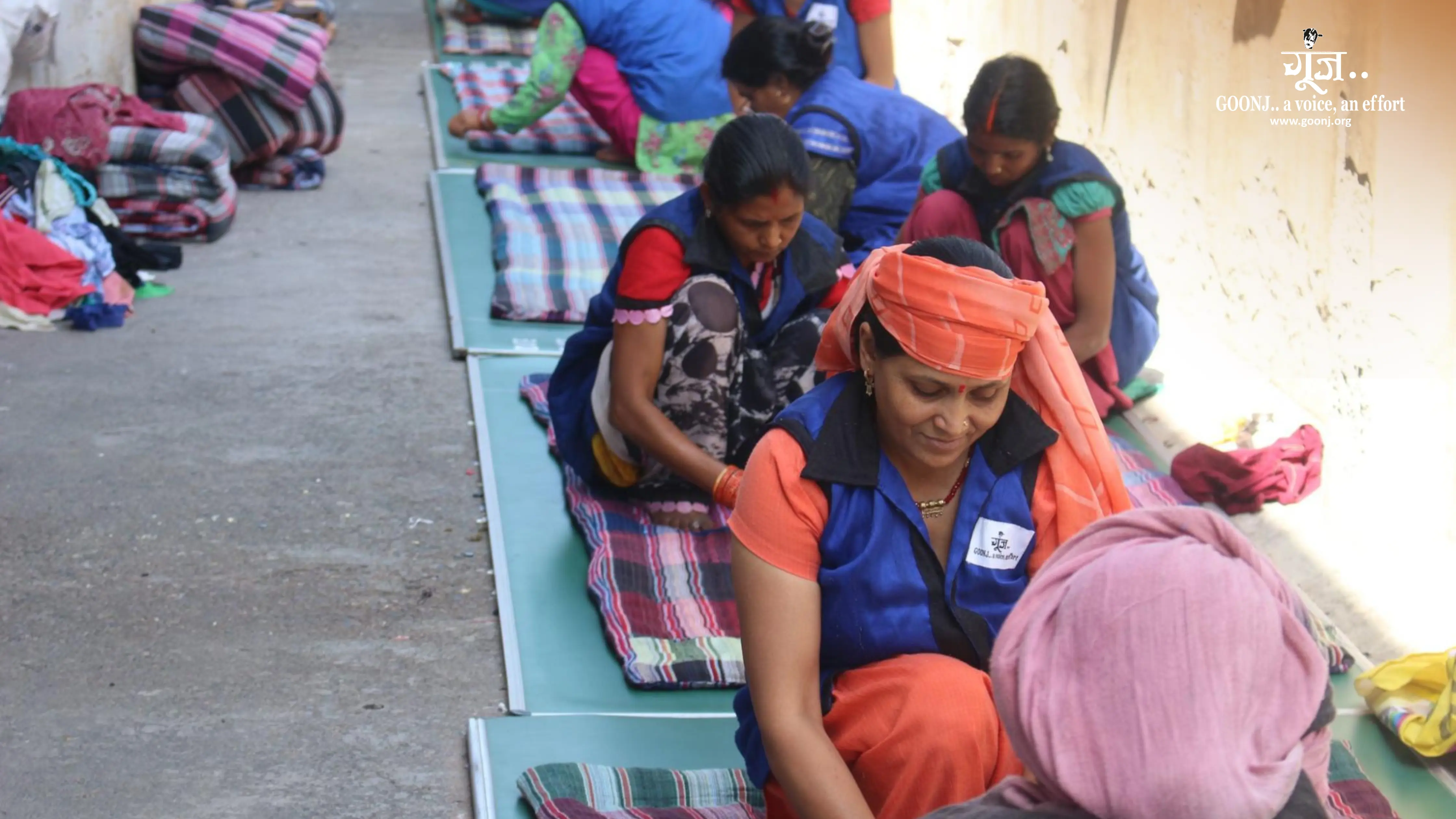
Ilias Bhai & Families Weaving Daris
Another success story is that of Ilias Bhai, a local teacher from Bihar who struggled to support his family on a meager salary. Due to his wife’s health issues, the family’s savings were drained by medical bills. It was during this time that his eldest daughter, Firdaus, began making daris (woven mats) on the family loom. As the whole family became involved, Ilias Bhai expanded the business by connecting financially weak families to the production of daris. Reflecting on his first large order from Goonj, Ilias Bhai shared, “When I received my first order of 2000 daris from Goonj, I was ecstatic. That’s when I knew things would change.”
In Moradabad, Goonj facilitated the decentralized production of essential items such as bedsheets, towels, and daris, ensuring steady livelihoods for artisans and their families. As of 2024, over 900 families are linked with Ilias Bhai, earning a stable income through the production of daris for Goonj.
Over the past decade, we have successfully upcycled 12 million kilograms of textiles, generating over one million person-days of employment. This effort has helped reduce landfill waste and empower rural communities with sustainable livelihoods. At Goonj’s Centers of Circularity, primarily run by women, donated textiles are carefully sorted and processed. Some are transformed into Family Kits for rural communities, while others are skillfully upcycled into functional products for urban and rural use. These products include school bags, quilts, sitting mats, and cloth sanitary pads, creating a positive impact with every stitch.
This innovative approach to repurposing India’s textile surplus offers a powerful model for circular sustainability. By using urban textile waste, we not only generate employment but also drive rural development and encourage responsible urban consumption. In 2023-24, our Cloth-Based Employment Program produced over 100,000 Sujnis, providing dignified livelihood opportunities for marginalized women.
To learn more about how Goonj is making a difference through Cloth-Based Employment, read our Annual Report here.
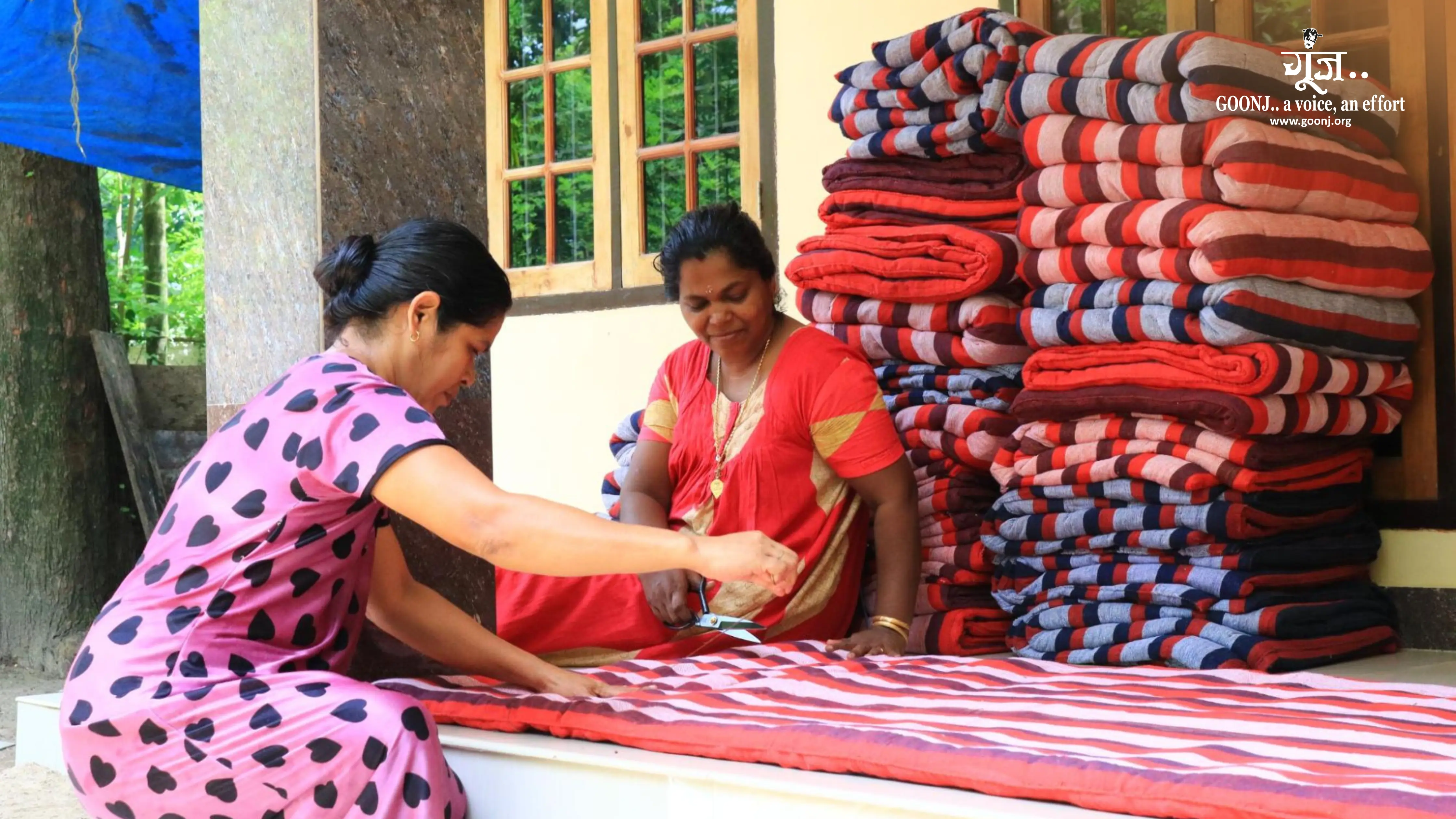
Goonj Textile Sorting Process
